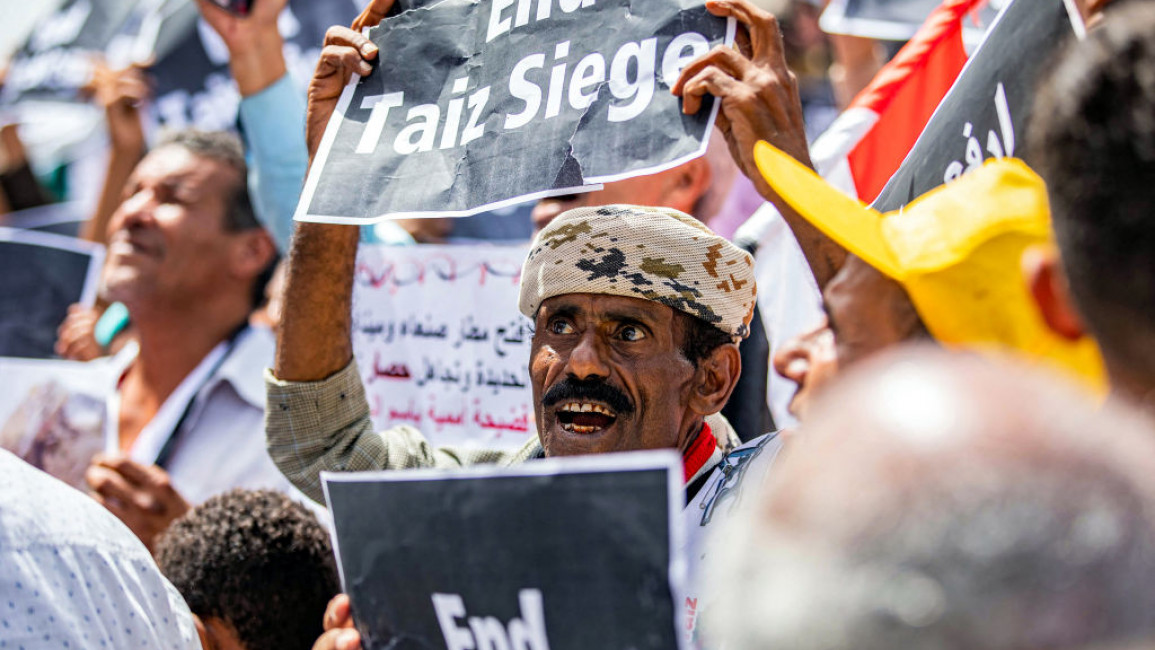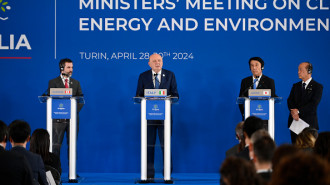Yemen’s Houthis announce opening of roads to besieged Taiz city
Yemen's Houthi rebels have started opening roads to the city of Taiz, partly lifting a seven-years siege against Yemen's third largest city, the Houthi-controlled SABA news agency announced on Saturday evening.
"Today we reassure and prove to everyone that we want to relieve our citizens and open [crossings into the city of Taiz]," the Houthi-appointed governor of Taiz, Salah Abdul Rahman Bajash, told SABA.
These developments come days ahead of a second round of peace talks between the Houthi rebels and the Yemeni government, due to start on Monday in the Jordanian capital Amman.
The talks follow two months of a relatively successful truce between the Houthis and the Yemeni government, which was extended on Thursday for two more months. The ceasefire was first implemented in early April ahead of the Muslim holy month of Ramadan, with the agreement of the Saudi-led coalition backing the Yemeni government, and of the Houthis, backed by Iran.
The truce included commitments by the Houthis to lift the blockade of Taiz, while their opponents agreed to let the rebels resume flights to and from Sanaa airport.
Yemen has been engulfed in a devastating civil war since 2014, when Iran-backed Houthi rebels from the north of the country seized the capital Sanaa, chasing the government to a new capital in Aden. In 2015, an Arab coalition led by Saudi Arabia intervened in Yemen to restore the government.
The conflict created now one of the worst humanitarian crises in the world while becoming a regional proxy war in recent years. All parties have been accused of committing war crimes and human rights abuses, including besieging cities and indiscriminately bombing civilians.
More than 150,000 people have been killed, including over 14,500 civilians.


